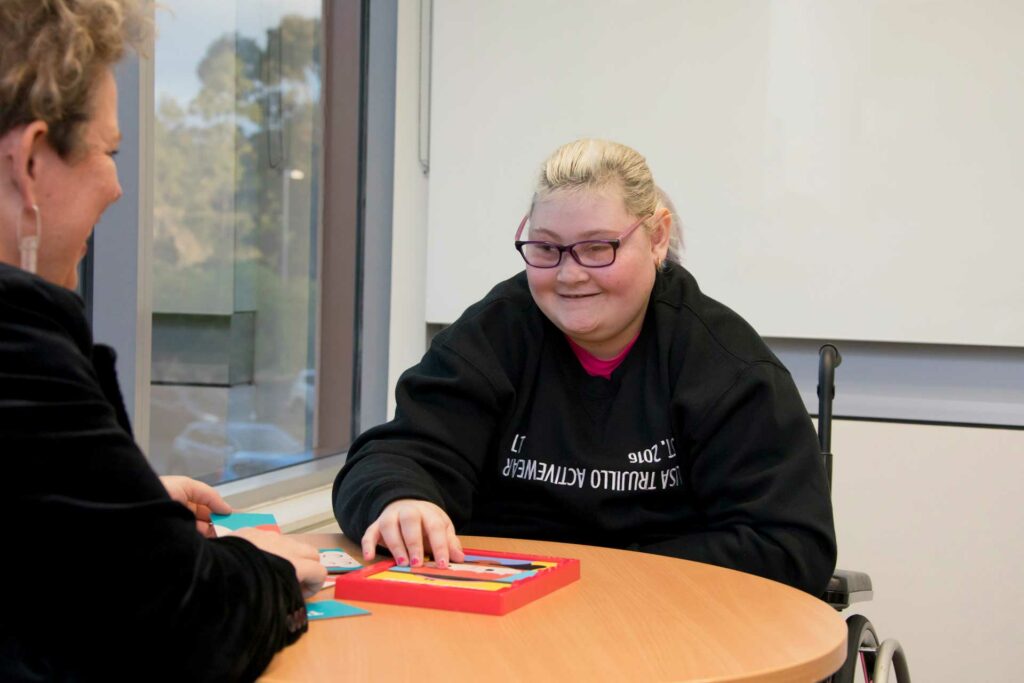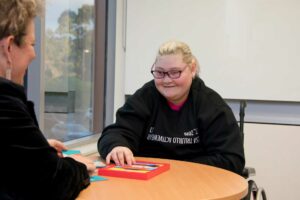What is Occupational Therapy?
Occupational Therapy (OT) is a branch of healthcare that focuses on helping people with disabilities to participate in everyday activities, including eating, bathing, dressing, home management, leisure and play, safety, sleep, financial management, meal preparation, social participation, and more.
What is Occupational Therapy for People with Disability?
Occupational Therapy helps individuals with disability to live independently and participate in daily activities. It is always a person-centred approach, designed to enhance an individual’s skills, abilities, and overall well-being. OT for people with disability is delivered in a way suitable for their individual needs, considering accessibility requirements.
How does Occupational Therapy for People with Disabilities Work?
Occupational Therapy for people with disability is a personalised approach that considers an individual’s unique needs, abilities, and goals. It typically starts with an initial evaluation to assess the person’s strengths and limitations. The therapist will then develop an approach that is tailored to the individuals needs.
For people with disability, OT may include adapting the persons’ environment, teaching self-care skills, and using assistive devices to help with daily activities. It may also include strategies to help the individual manage their disability, such as stress management techniques and education.
Benefits of Occupational Therapy for People with Disability
For people with disability OT has numerous benefits, including:
- Improved Quality of Life: Individuals with disabilities can participate in daily activities with ease and confidence, improving their overall quality of life.
- Increased Independence: Through OT, individuals learn to undertake daily activities independently.
- Enhanced Physical Function: The physical functioning of individuals improves with OT and helps maintain their strength and endurance.
- Improved Mental Health: When goals and needs are met, individuals can learn to cope more with the emotional and mental challenges they may face, such as stress, anxiety, and depression.
- Prevention of Further Injury or Complications: By teaching strategies to manage their condition, injuries and complications can be prevented.

More Articles

What is Occupational Therapy
What is Occupational Therapy? Occupational Therapy (OT) is a branch of healthcare that focuses on helping people with disabilities to participate in everyday activities, including

What is Speech Pathology
What is Speech Pathology? Speech pathology services are crucial for people with disability who experience difficulties with communication, including speech, language, and swallowing. These services

What is PBS
What is PBS? Positive Behaviour Support (PBS) is a proactive and person-centred approach that aims to improve quality of life and reduce behaviours of concern.